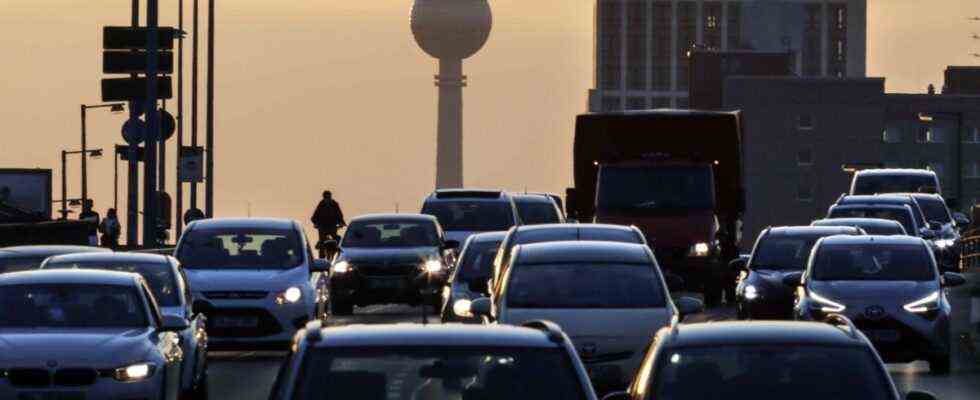Where the secretive troops meet every morning is top secret. What is clear, however, is that the twelve negotiators in Coalition Working Group 7 entitled “Mobility” pondered for hours on Friday over problems that could hardly be solved. The negotiators – Saarland’s Economics and Transport Minister Anke Rehlinger (SPD), Green Party leader Anton Hofreiter and FDP transport politician Oliver Luksic – know that they have to get the Germans to change trains. The transport sector has a miserable carbon footprint. Emissions from traffic have hardly fallen for 30 years. Now they have to be almost halved by 2030. In a decade, twice as many Germans should be traveling by train, and millions of diesel drivers should buy e-cars.
How can this be done? The negotiators are now working on this question. Her AG and the Finance and Budget group only have twelve days to write one of the most difficult chapters of the coalition negotiations. And in addition to the difficult-to-achieve goals for more climate protection in traffic, there are also positions that are difficult to reconcile.
On Friday, an example illustrated how far the parties are still apart. While the Greens absolutely want to abolish the commuter allowance, the FDP wants to keep it. As a precaution, party leader Christian Lindner publicly put up a stop sign: The reduction of subsidies should not become a tax increase for the working middle class, he said in an interview. Not when gasoline prices are so high and inflation is rising so sharply at the same time, insiders add.
The commuter allowance enables millions of Germans to deduct travel costs for commuting to work from their taxes. It is controversial because it favors driving. The Greens reacted to Lindner’s veto with a lack of public understanding: “It is not smart, in the midst of the climate crisis, to fuel it with large double-digit billions in taxpayers’ money,” said the financial politician Sven-Christian Kindler. Climate-damaging subsidies would make the transformation of the economy expensive and inefficient, distort the market and put a strain on the budget.
The negotiators avoid the car toll
In their exploratory paper, the SPD, the Greens and the FDP had actually planned to remove climate-damaging subsidies in order to gain financial leeway for the conversion. The Federal Environment Agency also calculated in a large study on Thursday that the reduction of such subsidies would bring double-digit billions in savings. However, it also admitted that dismantling was hardly possible in one fell swoop. Tax benefits for kerosene and airline tickets alone accounted for twelve billion euros. That can only be changed at EU level. Hardship for poor people should also be avoided.
The negotiators, it is said, are now looking for money in other ways for the environmentally friendly transport turnaround, for charging networks, for example, or the expansion of the railways and local public transport. For example, there is the truck toll, which will have to be amended in 2023 anyway. A more expensive tax for particularly noisy or less environmentally friendly vehicles would also be an option. In addition, the toll could be extended to smaller trucks from 3.5 tonnes, so far it is only due from 7.5 tonnes. There is also talk of extending the truck toll to long-distance buses, something environmentalists have been calling for for years. It is said that no one in the AG really wants a new attempt at the car toll, which had crashed under Transport Minister Andreas Scheuer.
Overall, such changes would give the future government one billion euros per year in additional leeway in the long term. If another CO2 surcharge is added to the truck toll, it would even generate income of two billion euros. But that’s not much for major renovation plans. That is why there is also talk of spending – for example, cuts in the e-car premium of up to 6,000 euros per vehicle. The premiums for plug-in hybrids, i.e. e-cars that also have an internal combustion engine on board, may be canceled or reduced.
So far it is completely open who should take over the post of Minister of Transport at the end of the negotiations. According to reports, all three parties have an interest in the department, which has the largest investment budget of all ministries. There are also candidates for the office. But it is still about completely different questions.

